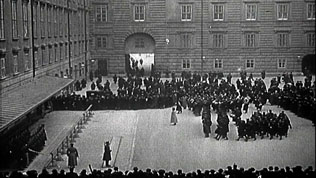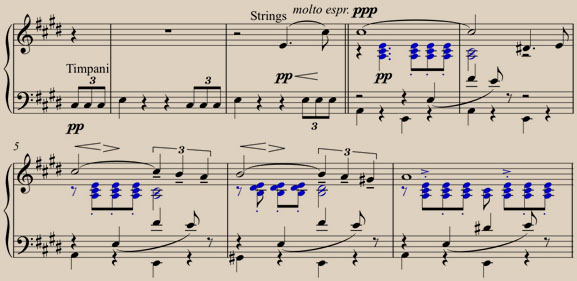City of Music: Triumph & Tragedy
In the City of Music
Mahler's Methods

Each of the regiments stationed in Iglau had its own band, and each band came from a different corner of Europe. Nevertheless, military signals were the same all over the Empire, and literal quotes of these trumpet calls abound in Mahler.
-
In the Third Symphony, the call of “Fall in!”
-
brings the daydreaming posthorn back to earth.
-
The Fifth Symphony opens famously and strikingly with a haunting trumpet solo that seems to warn us of approaching tragedy. The passage is made up of two common signals, changed from major to minor:
-
the General Appel (General Call)
-
and the call Habt Acht! (Take Care!)

Mahler’s Fifth Symphony makes obsessive use of the “fate” motive of Beethoven’s Fifth.
-
Initially it’s a motif of gentle urgency (and also an inversion of the piece’s opening fanfare) that accompanies the most intimate music of the first movement.
-
In the second movement, the same music returns in a shriller orchestration, sounding like a mocking laugh or an accusing cry.
